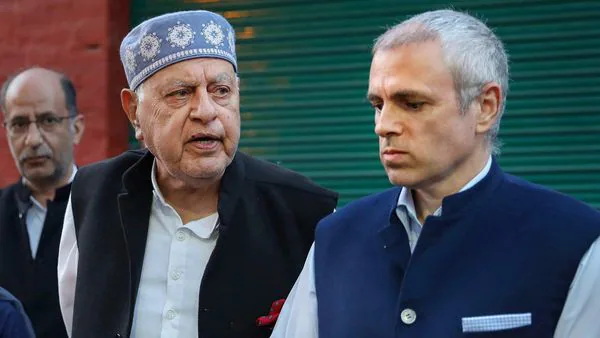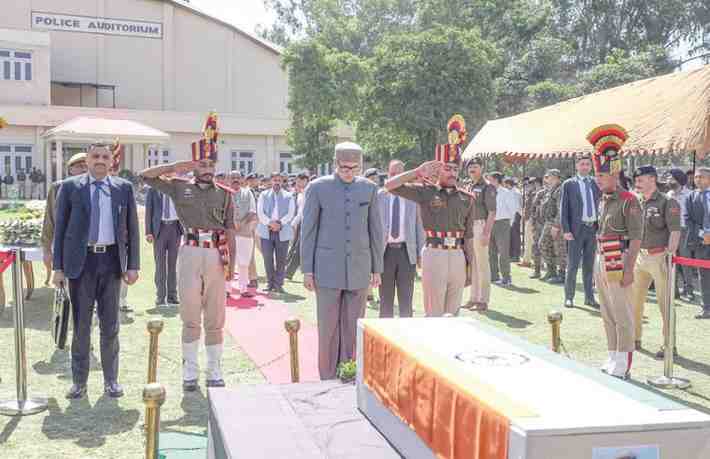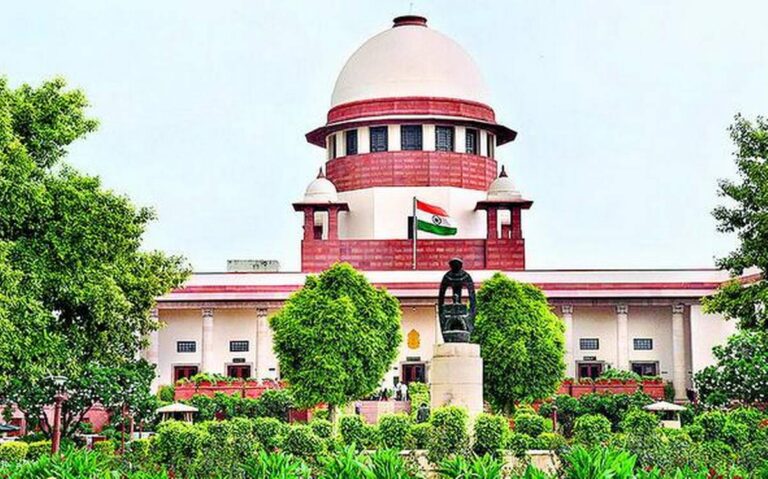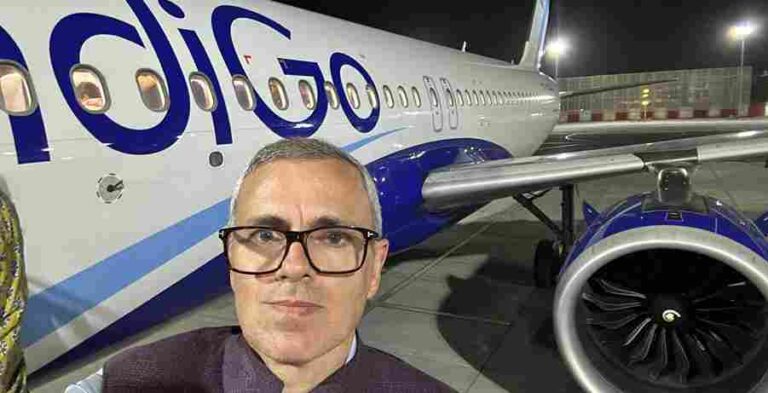Omar Abdullah Challenges Mehbooba Mufti to Address Dulat’s Claims About Her Father
In a recent escalation of political tensions in Jammu and Kashmir, Chief Minister Omar Abdullah, leader of the National Conference (NC), has publicly challenged People’s Democratic Party (PDP) president Mehbooba Mufti to clarify her stance on controversial claims made by former Research and Analysis Wing (RAW) chief A.S. Dulat about her late father, Mufti Mohammad Sayeed. The confrontation stems from Mufti’s endorsement of Dulat’s latest book, The Chief Minister and the Spy, which alleges that NC president Farooq Abdullah privately supported the abrogation of Article 370 in 2019. Abdullah’s pointed remarks, made on April 17, 2025, highlight a deepening rivalry between the two regional political heavyweights and underscore the complex interplay of personal legacies, political narratives, and historical controversies in Kashmir’s volatile political landscape.
Background: Dulat’s Controversial Writings
A.S. Dulat, a former intelligence officer who served as RAW chief and as an advisor on Kashmir during Atal Bihari Vajpayee’s tenure, is no stranger to stirring political debates with his books. His 2015 memoir, Kashmir: The Vajpayee Years, made several claims about key figures in Jammu and Kashmir politics, including Mufti Mohammad Sayeed, the founder of the PDP and a two-time chief minister of the state. While the specific allegations about Sayeed in Dulat’s first book are not fully detailed in available sources, they reportedly touched on sensitive issues, including his political maneuvers during the turbulent 1980s and 1990s, a period marked by rising militancy and electoral controversies in Kashmir. These claims caused significant political uproar at the time, with critics accusing Dulat of exaggerating or misrepresenting events for sensationalism.
In his latest book, The Chief Minister and the Spy, released in 2025, Dulat alleges that Farooq Abdullah, Omar’s father and NC president, expressed private support for the abrogation of Article 370, which granted special autonomy to Jammu and Kashmir until its revocation by the Indian government on August 5, 2019. Mehbooba Mufti, reacting to the book in Srinagar, stated that Dulat’s revelations were “not surprising” to her, citing alleged meetings between the Abdullahs and Prime Minister Narendra Modi in the days leading up to the abrogation. She further noted that Farooq Abdullah’s absence from Parliament on the day Article 370 was revoked corroborated her suspicions about the NC’s stance.
Omar Abdullah’s Counterattack
Omar Abdullah, addressing reporters in Jammu on April 17, 2025, seized on Mufti’s endorsement of Dulat’s latest claims to turn the tables on her. “If Mehbooba ji considers everything A.S. Dulat writes to be true, then should we also believe what he wrote in his earlier book about her father, the late Mufti Mohammad Sayeed?” Abdullah asked pointedly. He challenged Mufti to publicly address the implications of Dulat’s earlier allegations about her father if she accepts the former RAW chief’s writings as factual. “If we consider that to be true, how can Mehbooba ji make people understand? She should please answer that,” he added, emphasizing the need for consistency in her stance.
Abdullah’s remarks were not limited to questioning Mufti’s selective acceptance of Dulat’s narratives. He also criticized Dulat himself, accusing him of a pattern of sensationalizing political matters to boost book sales. “To sell his book, it is Dulat Sahib’s habit not to go with the truth,” Abdullah said, quipping, “With friends like this, who needs enemies?” This critique reflects a broader skepticism among Kashmir’s political class about Dulat’s motives, with Abdullah and NC leaders framing his writings as opportunistic and divisive.
The Context of Mufti Mohammad Sayeed’s Legacy
Mufti Mohammad Sayeed, who passed away in January 2016, was a towering figure in Jammu and Kashmir politics. Born in 1936 in Bijbehara, Anantnag, he began his career in the 1950s with the Democratic National Conference, later merging with the Indian National Congress. Over decades, he held significant positions, including Union Home Minister in V.P. Singh’s government (1989–1990) and Chief Minister of Jammu and Kashmir twice (2002–2005 and 2015–2016). In 1999, he founded the PDP, which became a major regional force under his and his daughter Mehbooba’s leadership.
However, Sayeed’s career was not without controversy. Dulat’s Kashmir: The Vajpayee Years reportedly alluded to Sayeed’s alleged role in polarizing events during the 1980s, including the 1987 Jammu and Kashmir assembly election, widely believed to have been rigged and a catalyst for the eruption of militancy in the region. Other sources have suggested that Sayeed, as a Congress leader at the time, may have contributed to communal tensions in Anantnag and supported separatist elements like the Muslim United Front (MUF) during the election to counter the NC’s dominance. Additionally, Dulat’s book raised questions about Sayeed’s political alliances and his daughter Mehbooba’s early interactions with separatist groups, including alleged links with Hizb-ul-Mujahideen during the 2002 elections.
One particularly contentious episode linked to Sayeed is the 1989 kidnapping of his daughter, Rubaiya Sayeed, by the Jammu and Kashmir Liberation Front (JKLF). As Union Home Minister, Sayeed faced criticism for the government’s decision to release five jailed militants in exchange for Rubaiya’s safe return, a move opposed by then-Chief Minister Farooq Abdullah. This incident, detailed in historical accounts, is often cited as a turning point that emboldened militant groups in Kashmir.
Mehbooba Mufti’s Political Stance and Response
Mehbooba Mufti, who succeeded her father as PDP president and became Jammu and Kashmir’s first female chief minister in 2016, has been a vocal critic of the abrogation of Article 370. Her endorsement of Dulat’s claims about Farooq Abdullah aligns with her narrative that the NC has been complicit in undermining Kashmir’s autonomy. By referencing alleged meetings between the Abdullahs and Modi in 2019, Mufti sought to portray the NC as less committed to the cause of Kashmiri self-rule than her own party.
However, Mufti has not publicly responded to Abdullah’s challenge regarding Dulat’s earlier claims about her father as of the latest reports. Her silence on this front may reflect the delicate balance she must strike in defending her father’s legacy while navigating the political fallout of revisiting controversial episodes from his career. The PDP, under Mufti’s leadership, has faced electoral setbacks in recent years, securing only three seats in the 2024 Jammu and Kashmir assembly elections compared to 28 in 2014. This decline in political capital may make her cautious about engaging in a public debate over her father’s past, especially when it risks alienating her core constituency.
Political Implications in Jammu and Kashmir
The public spat between Abdullah and Mufti underscores the enduring rivalry between the NC and PDP, two parties that have long competed for dominance in Kashmir’s political arena. Both leaders come from powerful political dynasties—Abdullah as the son of Farooq and grandson of Sheikh Abdullah, and Mufti as the daughter of Mufti Mohammad Sayeed. Their personal and political legacies are deeply intertwined with the region’s history, making such confrontations not just policy disputes but also battles over narrative control.
Abdullah’s challenge to Mufti also serves a strategic purpose. By questioning her selective acceptance of Dulat’s claims, he aims to deflect attention from the allegations against his father and cast doubt on Mufti’s credibility. The NC, which won a significant victory in the 2024 assembly elections, is keen to consolidate its position as the preeminent voice of Kashmiri aspirations, particularly on issues like the restoration of autonomy post-Article 370. Meanwhile, the PDP, weakened by recent electoral losses, faces the challenge of rebuilding its relevance without being drawn into controversies that could further erode its support base.
Broader Context: The Role of External Narratives
Dulat’s books, and the controversies they ignite, highlight the role of external actors—former bureaucrats, intelligence officials, and commentators—in shaping Kashmir’s political discourse. His writings, while offering insider perspectives, are often criticized for lacking verifiable evidence and for fueling mistrust among regional leaders. Abdullah’s accusation that Dulat exaggerates for commercial gain echoes a sentiment shared by many in Kashmir, who view such publications as exploiting the region’s complex history for profit or political agendas.
The timing of this controversy, in April 2025, is significant. Jammu and Kashmir remains a politically sensitive region, with ongoing debates about the restoration of statehood, the impact of Article 370’s abrogation, and the central government’s policies. Public exchanges like the one between Abdullah and Mufti amplify these tensions, reinforcing the divide between mainstream political parties and complicating efforts to present a united front on issues of regional autonomy and development.
Conclusion
Omar Abdullah’s challenge to Mehbooba Mufti to address A.S. Dulat’s claims about her father, Mufti Mohammad Sayeed, is more than a personal or political jab—it is a reflection of the deep-seated rivalries and historical grievances that continue to shape Jammu and Kashmir’s politics. By invoking Dulat’s earlier writings, Abdullah seeks to expose what he sees as Mufti’s selective use of controversial narratives to score political points. For Mufti, the challenge poses a dilemma: addressing the allegations risks reopening wounds tied to her father’s legacy, while ignoring them may weaken her credibility.
As the NC and PDP vie for relevance in a rapidly changing political landscape, this episode underscores the difficulty of reconciling personal legacies with public accountability. It also serves as a reminder of the enduring impact of historical events—like the 1987 elections and the Rubaiya kidnapping—on contemporary Kashmiri politics. Whether Mufti responds to Abdullah’s challenge or chooses to let the issue fade, the exchange has once again brought the region’s complex past to the forefront, ensuring that the debate over truth, trust, and political loyalty remains as contentious as ever.






